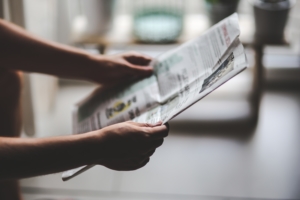
The attorneys at Nolan Heller Kauffman can help you explore options to keep your business operational and compliant with your bar and restaurant liquor licenses. We recognize that many businesses have been negatively impacted by the COVID-19 crisis and we are here to help.
Navigating the New SLA COVID-19 Guidance:
On March 16, 2020, in response to the COVID-19 crisis, Governor Cuomo issued a statewide mandate that restaurants operate only for takeout and delivery, causing many of those businesses to experience huge losses of revenue. In order to help those impacted businesses, the New York State Liquor Authority (the “SLA”) issued a series of directives aimed to ease the restrictions on operations and financial obligations of businesses licensed to serve alcohol.
Normally, on-premises licensees (restaurants, bars, taverns, clubs, arenas, catering establishments, etc.) are only permitted to sell alcohol for consumption on their licensed premises, with the exception of takeout beer. In order to boost revenues, the SLA is temporarily allowing on-premises licensees to sell wine and spirits- in addition to bottled beer for takeout and delivery in conjunction with a food sale. The sale of mixed drinks for takeout or delivery in conjunction with a food sales is also permitted so long they are in closed containers consistent with an open container ordinance. Licensees do not need to obtain any waiver or permission from the SLA in order to make such sales.
The SLA has also acknowledged that retailers may have a larger inventory on hand than needed to meet their more limited current demand. Accordingly, on March 24, 2020, the SLA issued an Advisory allowing wholesalers and manufacturers to accept returns of certain products from retailers who no longer need them; a practice which under normal circumstances would not be permitted. Products purchased by a retailer from a wholesaler or manufacturer on or after March 1, 2020 may be returned to such wholesaler or manufacturer. Products purchased from a manufacturer on or before March 17, 2020 may be returned by the retailer to the manufacturer. While wholesalers and manufacturers are not required to accept returns, if they opt to do so, they must do so from all retailers who purchased a product, without regard to the amount of product the retailer wishes to return.
The Advisory also aims to ease requirements for licensees by immediately waiving the normal requirement that a licensee place their license in safekeeping during a temporary closure. This will make it much easier for restaurants to quickly resume their operations without having to retrieve their license from the SLA.
SLA Advisories on March 26, 2020:
On March 26, the SLA issued three subsequent Advisories. The first two address renewal of liquor license applications and allow licensees to submit Renewal applications for any licenses expiring on March 31, 2020 or April 30, 2020 without payment of the required renewal fees. If the renewal application is otherwise timely and complete, the licensee will be placed on State Administrative Procedure Act, or “SAPA” status and allowed to continue operating under such status until May 31, 2020, or until payment is made, whichever comes first.
Additionally, the normal requirement that 30-Day Notice forms for Renewal applications required within New York City) be submitted via mail is waived. Service can be made by email, provided that the municipality (usually a Community Board) will accept service of the notice by emails, and the applicant receives a response from the municipality acknowledging that it has received the notice. Computer-generated delivered or received messages are not sufficient.
The third Advisory pertains to penalties, and provides that beginning on March 24, 2020, the SLA Secretary’s Office will delay issuing “Notices of Disposition” which include demand for payment for any matter where the Full Board imposed a civil penalty. This will effectively give licensees who would otherwise be required to pay fines based on license violations an extension of time before the payment is demanded and due. The Advisory also states that the SLA will not impose the alternate penalty in any matter where the licensee has failed to submit timely payment of the civil penalty. Often, if a licensee fails to timely pay a fine, the alternate penalty is a bond claim and/or cancellation of the license. By this Advisory, the SLA is allowing businesses that have already had fines assessed against them a further extension of time to pay without incurring a more serious penalty.
Each of these Advisories and temporary procedures are subject to further changes and/or extensions as the SLA continues to evaluate the scope and status of the COVID-19 crisis and its impact on licensed businesses.
The SLA is continuing to process and review applications during this time, though Full Board Meetings are not open to the public. Any presentation in support or opposition of licensing and miscellaneous matters must be submitted via email by the date set forth in the notice (as is the current practice) and no other submissions and no appearances will be permitted. All licensing applicants can request to have their application held in abeyance until normal Full Board Meetings resume.
COVID-19 Relief Loan Programs:
There are a number of loan programs available to assist existing businesses, including but not limited to restaurants and bars, which have been impacted by COVID-19. The Small Business Administration (the “SBA”) is offering two different kinds of COVID-19 relief loans: the SBA Economic Injury Disaster Loans (“EIDL”) and the Paycheck Protection Program (“PPP”) under the CARES Act. Your business may qualify for one or both of these loans. Use the terms below to determine how each might be applicable to you and your business.
SBA EIDL Program:
Program parameters and use of funds:
- Eligibility: Small businesses with 500 or fewer employers
- Amount: Up to $2 million, including affiliate loans. The amount determined by SBA’s assessment of your business’s losses due to the COVID-19 crisis.
- Interest rate: 3.75% fixed for small businesses and 2.75% for non-profit organizations
- Term: 30 years
- Use of funds: EIDL loans can only be used to alleviate economic injury as a result of the COVID-19 crisis. You can use the funds to pay fixed debts, payroll, accounts payable and other bills that you would have typically been able to pay had your business not been impacted. The funds from these loans cannot be used to replace lost sales, refinance long-term debt or to expand.
- Notes: There is no prepayment penalty and there is a one-year deferment on the loan (interest will still accrue during this period.
Eligibility and requirements:
- Open to a wide variety of impacted businesses, including hotels, recreational facilities, manufacturers, restaurants, retailers, and more.
- Loans available to small businesses (and most non-profits) directly impacted by COVID-19, as well as those that offer services directly related to impacted businesses. Businesses likely to be harmed by general losses in their community are eligible.
- Your business must be suffering economic losses due to COVID-19, and COVID-19 only.
- Your personal credit history must be acceptable to SBA.
- You must be able to demonstrate an ability to repay the loan.
- Collateral is required for all loans over $25,000. If real estate is available, it must be pledged as collateral. If you do not have collateral to pledge, you will not be declined, however, you are required to pledge what collateral you do have available.
- There is no cost to apply.
- You do not have to take the loan if you are approved, so it is better to apply early, get approved, and then decide whether or not you need/want to take the loan.
- You can request up to $10,000 in advance.
- At this time, there is no loan forgiveness for an EIDL loan. If you received an EIDL loan, you could apply for a PPP loan, refinance the EIDL loan into a PPP loan and apply for forgiveness.
Program parameters and use of funds:
- Eligibility: Small businesses that were in operation on Feb. 15, 2020, with 500 or fewer employees, as well as individuals who are either a sole proprietorship or an independent contractor.
- Amount: Up to 250% of your business’s average monthly payroll costs (calculated as an avg. of payroll over the last 12 months), with a maximum of $10 million.
- Interest rate: Fixed-rate at 0.5%.
- Fees: None.
- Term: 2 years; full deferment of principal and interest for six months.
- Loan forgiveness: All or a portion of the loan may be forgiven if the business complies with fund usage rules.
- Collateral: No collateral or personal guaranty requirements.
- Use of funds:
- Salaries, wages, payroll, independent contractors (1099), benefits, etc.;
- Up to 25% of the money can be used for non-payroll related expenses and may qualify for forgiveness;
- Interest on mortgages and other loans; and
- Refinance of an SBA EIDL loan made after January 1, 2020.
Eligibility and requirements:
- Business must have been operational on February 15, 2020.
- Businesses must have employees who are paid salaries and payroll taxes or paid independent contractors as reported on Form 1099.
- For-profit and non-profit small businesses are eligible.
- Sole proprietorships, independent contractors, and other self-employed individuals are eligible.
The attorneys at Nolan Heller Kauffman would be happy to assist you with determining whether one or both of these programs are available to you. Our team can also help you continue to navigate SLA compliance in light of these new guidelines. If you have questions regarding the operation of your existing licensed business, and/or are contemplating applying for a new license, please contact Alexandra B. Becker, Esq. by e-mail (abecker@nhkllp.com) or phone (518.432.3188).




FOLLOW US